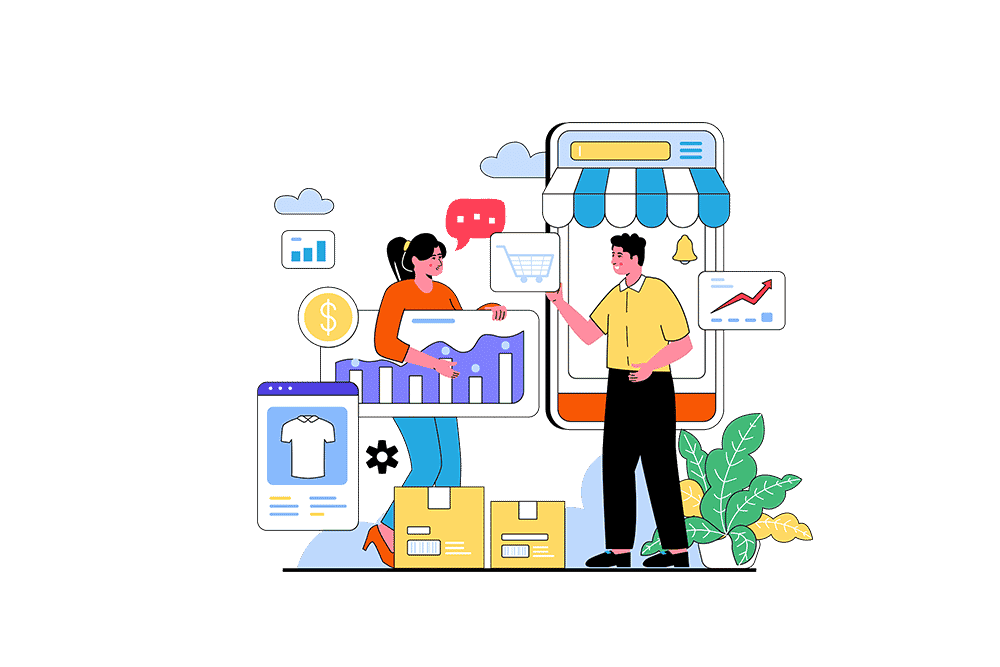Online Customer Service Tips to Help Win and Keep Customers
Most companies are in business to make money, but the truth is that if you focus on profit at the expense of customer satisfaction, sooner or later you’ll find yourself with no customers. In other words, we all have a responsibility to provide our clients with a positive experience when they do business with us—and that means doing things they actually want us to do. Here are some tips on how to improve your online customer service.

1. Reliability
Reliability is a key part of online customer service. If your customers don’t know what to expect from you, they can’t trust you and this can be devasting to your online customer service. If they can trust you and count on you for certain things, then they will continue doing business with you.
Reliability means that when customers contact you, they know what to expect from your customer service department in terms of their problem resolution process:
- How long it will take for someone to get back to them (this could be as short as a few minutes or as long as several days)
- What the next steps are once they submit their issue online or via phone call (i.e., whether they need to wait for an email response or if there is someone available immediately)
2. Integrity
- Be honest
- Don’t make promises you can’t keep. If you’re not sure about the delivery date for your product, let your customers know that and give them a range of dates instead of making one up.
- Don’t make promises you don’t intend to keep. If your product is on backorder because the manufacturer had an unexpected delay in production, let your customers know as soon as possible and give them options for how they want to proceed with their order (such as canceling or waiting longer than originally promised).
- Don’t blame other people if things go wrong
3. Clarity
If you’re an entrepreneur, there’s a good chance that the word “clarity” is one of your least favorite words. In fact, if you’re like me and many of my peers, the mere mention of it can send shivers down your spine. We are risk-takers at heart—we enjoy ambiguity! But if there’s one thing I have learned from being a founder, it’s that clarity means everything when it comes to running a successful business. And for those who don’t run their own businesses? Well, as consumers and clients ourselves (and we all are), we want clarity too! It’s important for online customer service.
We want to know:
- What products you sell;
- Who will be delivering those products;
- When they’ll arrive;
- How much they’ll cost;
- And why these things matter so much in our lives (because they do).
4. Honesty
Honesty is the best policy. This holds true to online customer service as well.
If someone is dishonest with you, chances are they’ll lie to you again in the future. Honesty can be hard: it takes courage to admit mistakes and ask for help when you need it most. But by being honest with your customers, you’ll build trust, loyalty and long-lasting relationships with them increasing your online customer service satisfaction.
5. Authenticity
- Be yourself. The more authentic you are, the better your customers will respond to you. They want to know what kind of person they’re dealing with. If they can tell that you’re faking it, or trying too hard to be something other than what you are, then they’ll feel like they’ve been tricked into doing business with someone who knows nothing about them or their needs—and that’s going to leave a bad taste in their mouths.
- Don’t fake it. This goes along with being yourself; don’t pretend that things are different from how they actually are just because someone else wants them to be (or maybe even because you do). For example: if your company has been losing money for a while but has just started making some profit again recently thanks to new marketing strategies, don’t pretend like everything is fine when in reality there may still be problems ahead—it’ll only make things worse later on down the road when those problems come back up again unexpectedly!
6. Transparency
With online customer service transparency is key. Transparency is the quality of being open and honest with others. It’s about being willing to share information, whether it’s good news or bad news. When you’re transparent with your customers, they’ll feel more confident in doing business with you because they know exactly what to expect from you.
Some ways that businesses can be transparent include:
- Sharing information about their products or services (e.g., pricing) on their website or social media pages.
- Using social media posts as a way to communicate directly with customers/clients instead of through email marketing campaigns only (e.g., Snapchat stories).
- Making sure employees are available via phone calls if someone has questions prior to buying something online so they don’t have any doubts after making a purchase (e.g., Amazon Prime).
7. Personalization
Your customers want to feel like you value their business.
They want to feel like you care about them.
They want to feel like you are listening to them.
And they also want to know that they’re being heard, because when someone listens with no agenda or expectation other than understanding what is being said, it’s much easier for us all (including our customers) to connect on a deeper level, which can result in more sales and happier customers!

8. Compatibility
Compatibility is about understanding your customer’s needs.
Let’s take a look at some of the key points you should be aware of when it comes to compatibility:
- You need to know your customer’s business and industry inside out. This includes a detailed understanding of their priorities, challenges, goals, etc., so that you can provide them with solutions that address those issues specifically rather than just “doing what’s best for everyone” (which is rarely the case).
- You need to understand what they need from you in order to make sure they get it—and if you don’t offer those things or can’t deliver those things with consistency or quality, then there won’t be much reason for them to stick around with your company past the initial sale (or even worse: they’ll leave after buying something once and leave a bad review).
- If this sounds like a lot of work—it can feel overwhelming sometimes! But fortunately, most businesses already have all these kinds of details stashed away somewhere internally because they’ve learned through experience how important it is not only for sales but also just general day-to-day operations as well (e.”
9. Proactivity
There’s a difference between being proactive and simply responding to customers. When you take action before someone has asked for help, you’re doing more than just getting ahead of the game—you’re showing your customers that they matter.
The best businesses have a proactivity mindset: They anticipate customer needs and go out of their way to make them happy. Proactivity is a mindset, skill or habit that all businesses should adopt as part of their culture or strategy—and it’s something we can develop with practice!
Being proactive means taking action in advance so that when things do go wrong (and they will), you’ll be ready with an answer without waiting on someone else. It also helps avoid putting undue stress on yourself by allowing for more time planning exactly how you’ll deal with these issues rather than scrambling at the last second like most companies do when something comes up unexpectedly…
10. Consistency
Consistency is underrated. Trust, familiarity and loyalty are built upon consistency. When you consistently show up, do the right thing, and deliver on your promises, you build a positive relationship with your customers.
A consistent customer experience is vital to any brand or business because it helps people feel like they know you and this is important for online customer service. People also tend to trust companies that have a sense of consistency about them — as long as it’s not “consistency” in the sense of unreliability or poor quality service!
Consistency builds brand identity, which fortifies your customer base by making them feel more familiar with who you are and what you do for them — whether that’s providing something tangible like a product or service or something more intangible like an experience at one of your locations (like being made to feel welcome). It helps create that feeling in us all: “I know I can rely on this person/company because they won’t let me down.”
11. Individualization and Customization
The internet is full of personalization and customization, and this has become important for online customer service. From the very beginning, e-commerce sites have been trying to capture the hearts and minds of shoppers by providing them with a unique experience that feels tailored to their needs. Amazon has Prime, which comes with personalized recommendations based on what you’ve previously bought; Netflix does something similar with its “Recommended for You” section; even Tinder has a feature where you can favorite or pass on potential matches depending on whether or not they share your interests (or lack thereof).
The point is that customers want to feel like they are getting something special from their purchases; they want to feel like they are getting something that is unique to them—something tailored just for them—and this goes beyond simply ordering items and receiving them in the mail.
As entrepreneurs, we need to be aware that our customers value individuality over everything else when it comes time for them to make purchase decisions. Keep this in mind as you try out new marketing strategies!
12. Your customers want to feel like you value their business.
Your customers want to know that they are important to you. When they know that you value their business, they’re more likely to keep coming back and will be more willing to spread the word about your business. This is important for any company conducting business online and their online customer service.
This is especially important when you’re trying to differentiate yourself from competitors who might be able to offer lower prices (but are not necessarily providing a superior product or service). By showing that your commitment goes beyond just having the lowest prices, but also showing how much passion and care goes into what you do, it can help set yourself apart from other businesses in your industry.
Conclusion
The bottom line? Your customers want to feel like you value their business. They want reassurance that you’re in it for the long haul, and they want to know what they can expect from your company. If you take the time to get to know your customers and understand their needs, then you can provide them with better service—and that will ultimately lead to more referrals, repeat purchases and loyalty from them. Here is a great resource from HubSpot regarding Customer Service Certifications & Courses if you want to level up your customer service game!
We also offer Digital Consultancy that helps businesses plan and grow their online infrastructure to better understand your customers wants and needs.





